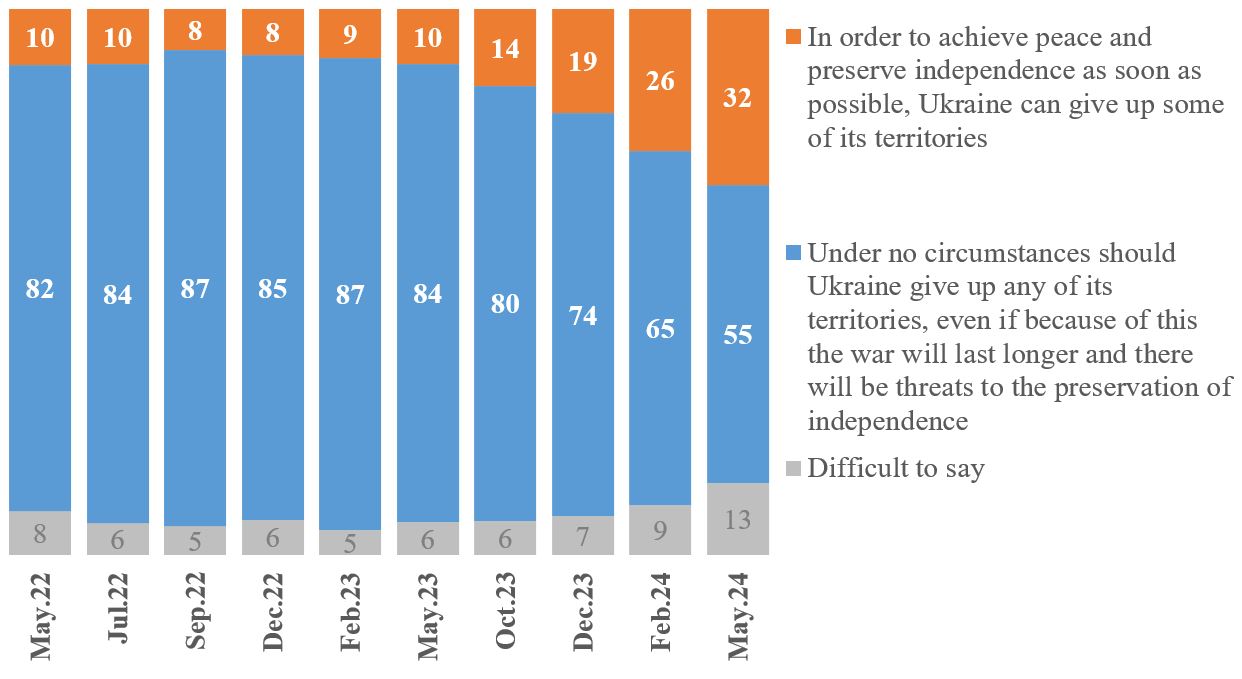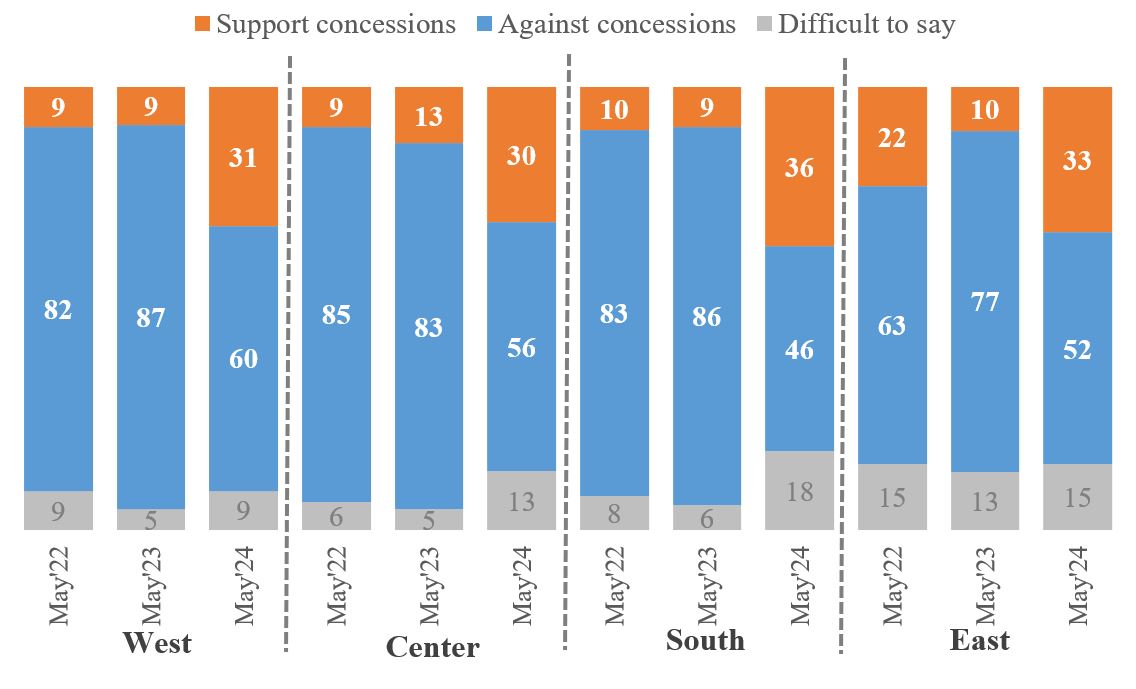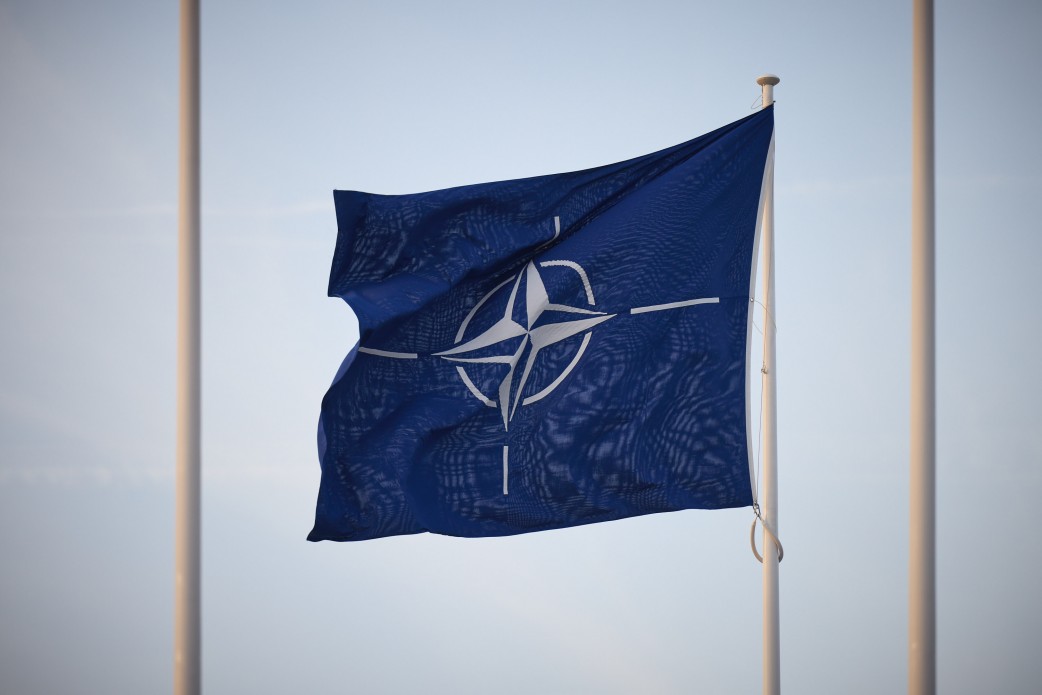The press release was prepared by Anton Grushetskyi, executive director of KIIS
According to a survey conducted by the Kyiv International Institute of Sociology (KIIS) from May 16-22 and June 20-25, 32% of Ukrainians in May considered territorial concessions to Russia for the sake of achieving peace and preserving independence.
Conversely, 55% of respondents deemed such concessions unacceptable under any circumstances, while 13% were undecided.
KMIS notes that in previous surveys conducted after the full-scale Russian invasion of Ukraine, up to May 2023, only 8-10% of respondents were open to territorial concessions, with 82-87% finding them unacceptable. However, this percentage has gradually increased since then.
Regionally, no more than one-third of respondents across all macro-regions are open to territorial concessions, with majorities in all regions opposing them.


Among those generally open to concessions, 73% want closed borders, visas, and customs between Ukraine and Russia. This is similar to the percentage among those opposed to any concessions.
KIIS emphasizes that the survey's wording on territorial concessions does not specify which territories might be subject to concessions, nor does it imply official recognition of territories as Russian or readiness for capitulation.
"The statement measures how Ukrainians are generally willing to discuss potential peace parameters in the context of territorial control," the research notes.
In June, only 8% of respondents found a hypothetical peace package—preserving Russian control over all currently occupied territories, abandoning NATO membership but joining the EU, and receiving EU reconstruction funding—acceptable. Meanwhile, 30% found it undesirable but acceptable, and 54% found it completely unacceptable.
A package maintaining Russian control over all occupied territories but including both NATO and EU membership for Ukraine was considered acceptable by 10% of respondents. For 37%, it was undesirable but acceptable, and 38% found it completely unacceptable.
A hypothetical package including NATO and EU membership while maintaining Russian control over occupied parts of Donetsk and Luhansk regions, as well as Crimea, was acceptable to 20% of respondents. 37% found it undesirable but acceptable, and 33% deemed it completely unacceptable.
The survey included 1,067 respondents in May and 2,008 in June. It was conducted among adults in government-controlled areas, with approximately 2% having relocated from occupied areas. The statistical margin of error for the May survey is 4.1% with a 0.95 probability and design effect of 1.3. In June, respondents were randomly divided into three equivalent subsamples (644-694 each), with a margin of error of about 5% for each subsample.





















